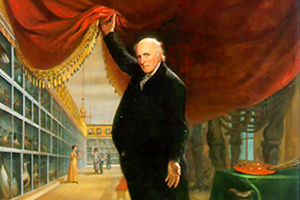Digital Media Professors Win NSF Gaming Grant
October 24, 2013
 Digital Media Professors Dr. Jichen Zhu and Dr. Glen Muschio and School of Education Assistant Professor of Learning Technologies Dr. Aroutis Foster were awarded a National Science Foundation (NSF) grant to conduct a yearlong investigation on how to make educational gaming more adaptive to students’ learning abilities. The project, titled “TAEMILE: Towards Automating Experience Management in Interactive Learning Environments,” involves integrating state-of-the-art artificial intelligence techniques with a game-based educational model called Play-Curricular activity-Reflection and Discussion (PCaRD).
Digital Media Professors Dr. Jichen Zhu and Dr. Glen Muschio and School of Education Assistant Professor of Learning Technologies Dr. Aroutis Foster were awarded a National Science Foundation (NSF) grant to conduct a yearlong investigation on how to make educational gaming more adaptive to students’ learning abilities. The project, titled “TAEMILE: Towards Automating Experience Management in Interactive Learning Environments,” involves integrating state-of-the-art artificial intelligence techniques with a game-based educational model called Play-Curricular activity-Reflection and Discussion (PCaRD).
TAEMILE's interactive learning environment is based on Charles Willson Peale's Museum of Art and Science. Peale was an artist and naturalist, a contemporary of Jefferson and Franklin and one of the founders of Pennsylvania Academy of Fine Arts. Dr. Muschio began a project to digitally recreate the Peale museum with help from Prof. Dave Mauriello and Drexel STAR Scholar Matt Haas. Their project received a College mini-grant 2011.
The TAEMILE team, which also includes several undergraduate and graduate Digital Media and Computer Science students, will investigate how different types of students learn in their game Solving the Incognitum and personalize the learning environment to better meet individual needs. For example, some students may be more "goal oriented" or “exploration orientated.” Having the game intelligently adapt to these differences may provide better learning outcome. The TAEMILE team partnered with Philadelphia's George Washington Carver High School of Engineering and Science to conduct this research.
Dr. Zhu explains that the data and knowledge gathered in the project will help to bring adaptive technology developed for the entertainment games into the educational settings. “What makes this project so exciting is that it gives us a chance to address a key challenge in educational games - how to provide the pedagogical structure needed for learning while still giving the player the freedom to do it in her own way,” said Dr. Zhu.